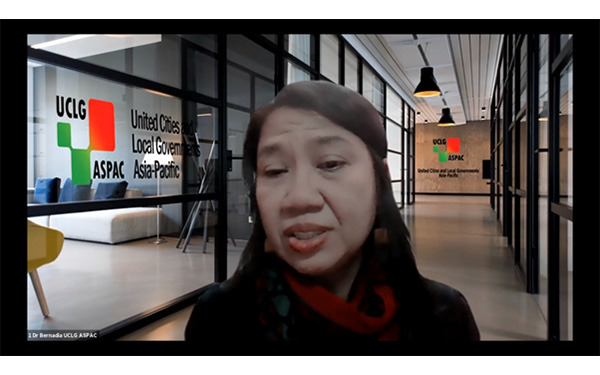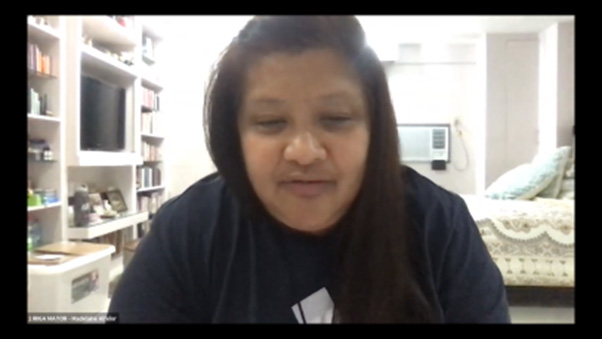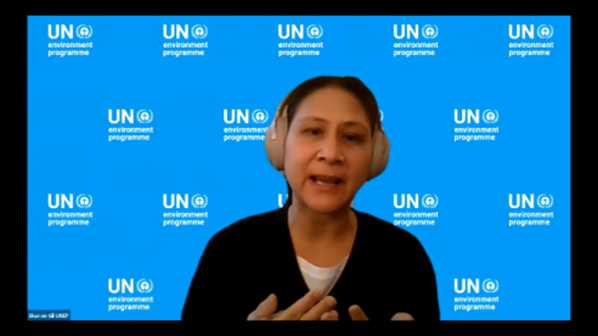27 November 2020 | UCLG ASPAC, in close collaboration with the United Nations Environment Programme (UNEP), invited city representatives and relevant institutions to seek alternative solution for the economic and environmental challenges resulting from the COVID-19 pandemic, through the webinar Circular Economy Jobs in ASEAN Cities. The discussion shared the general concept of circular economy, showcased practices conducted by city of Malang (Indonesia) and Iriga (Philippines), and introduced some necessary approaches to be considered for implementation.
According to UNEP, the fundamental of the circular economy concept is on how cities’ sustainable consumption and production can provide a balance life for each living being. Cities can start by rethinking on how they manage their resources, how they provide cleaner and sustainable energy, establish a circular building supply chain, and design their food system and food waste. By readdressing those sectors, cities will be able to “Detoxifying” (to get rid of the hazardous chemical material), “Decoupling” (to review cities sustainable consumption and production), and “Decarbonising” (to combat climate change and energy scarcity).
Mayor Madelaine of Iriga City shared some examples practiced in Iriga: 1) converting biodegradable waste into active carbonate charcoal to substitute fossil fuel. This initiative has attracted the interest of South Korea that opens the possibility of further cooperation. 2) Converting the vegetable waste into a solar panel that combines a resin, as conducted by a Mapua Engineering Student. In addition, she shared challenges faced in implementing circular economy included the frequent of disasters (typhoon). The destruction displaces not only citizens but also their job opportunity. The situation exacerbates because the recovery and rehabilitation have to start all over again from phase one as there is another disaster strikes in the middle of the process.
Representing Malang Regency is Mr. Renung, the Head of Waste Management of Toxic and Hazardous Materials, Environmental Agency. He shared that with the support of UCLG ASPAC and UNESCAP, Malang started implementing the circular economy model in 2014, through the Integrated Resource Recovery Centre (IRRC) programme. It has helped the city to manage a huge amount of waste previously contaminating the water body and triggering other environmental issues. Currently, Malang has already had 280 units of Waste Bank. It has also continuously collected waste from 21,000 members. This initiative has successfully created a job opportunity for 80 households and now becomes one of the best practices in the Malang Regency.
UNEP also shared that it has developed “Circular Economy Tool” that contains certain index to indicate city’s level related to circular implementation process. Those indicators are also useful to track city’s progress over time. Cities will be able to identify areas of development they need to prioritise in the future.
The discussion also generated some ideas shared as attempts to achieve a circular economy, including creation of a national profile using a global open-source database (EXIOBASE, EORA, ILO), plugging into the local employment data, down-scaling the national data, and deriving the high potential circular economy sectors. The discussion acknowledged that the city typology will allow benchmarking among cities of the same economic cluster. Cities will able to make a scenario planning as well as to determine how impactful the policy for the future.













